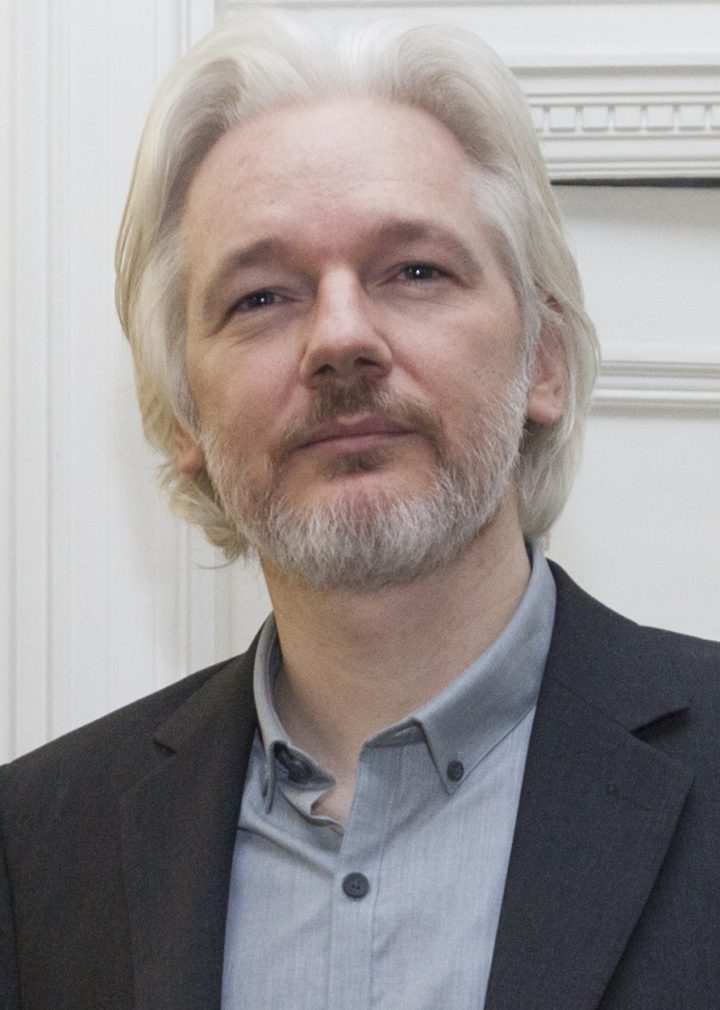UK police say they can arrest Assange if he leaves embassy, while AG Sessions said his arrest is ‘priority’
by Andrea Germanos, staff writer for Commons Dreams
Though Julian Assange’s advocates welcomed the news Friday that Swedish prosecutors dropped their seven-year investigation of sex crimes allegations into the WikiLeaks founding editor, they expressed continued concern over the threats he still faces from the U.S. and U.K..
“In order to proceed with the case, Julian Assange would have to be formally notified of the criminal suspicions against him. We cannot expect to receive assistance from Ecuador regarding this. Therefore the investigation is discontinued,” said Sweden’s top prosecutor, Marianne Ny.
“The decision to discontinue the investigation is not because we’ve been able to make a full assessment of the evidence, but because we didn’t see possibilities to advance the investigation,” Ny said.
For his part, Assange, who’s been stuck at the Ecuadorian embassy in London for roughly five years, tweeted Friday morning: “Detained for 7 years without charge by while my children grew up and my name was slandered. I do not forgive or forget.”
His accuser said it was a “scandal” to drop the investigation, while Assange’s lawyer, Per Samuelsson, said it marked a “total victory.”
But he could still be arrested as “Mr. Assange remains wanted for a much less serious of offense,” a spokesperson for the British Metropolitan Police said Friday. He skipped bail and did not turn himself in or “surrender to the court” in 2012, and instead sought asylum at the Ecuadorian embassy.
Further, Wikileaks tweeted that the “U.K. refuses to confirm or deny whether it has already received a U.S. extradition warrant for Julian Assange.”
As Common Dreams noted earlier this month,
While speculation has long been that the U.S. government has a sealed indictment against Assange, the government refuses to openly say whether or not criminal charges exist against the man whose media organization has published troves of classified material, much of which has exposed secrets that paint the global superpower—and many of its top political leaders—in a negative light.
And it appears that the Trump administration has renewed interest in pursuing Assange.
In a statement Friday referencing the ongoing “major threats issued against WikiLeaks and its staff for their journalistic work,” I Am WikiLeaks, a campaign run by the Courage Foundation, said: “Just last month, CIA director Mike Pompeo declared that the publisher was a ‘hostile intelligence service.’ Attorney General Jeff Sessions stated that Assange’s arrest was ‘a priority,’ amidst reports charges were being prepared against WikiLeaks members.”
“The U.S. Department of Justice [DOJ] has been running an unprecedented and wide-ranging investigation into WikiLeaks for its publishing and sourcing work since 2010,” the statement continued.
Given such threats, noted figures including artist Patti Smith and National Security Agency whistleblower Edward Snowden called on President Donald Trump to stop pursuing charges against WikiLeaks and Assange. They wrote in an open letter this week that a “threat to WikiLeaks’ work—which is publishing information protected under the First Amendment—is a threat to all free journalism. If the DOJ is able to convict a publisher for its journalistic work, all free journalism can be criminalized.”
Summing up the current situation, Glen Greenwald writes at The Intercept that “[t]he termination of the Swedish investigation is, in one sense, good news for Assange. But it is unlikely to change his inability to leave the embassy any time soon.”
“If anything,” he continues, “given the apparent determination of the Trump administration to put him in a U.S. prison cell for the ‘crime’ of publishing documents, his freedom appears farther away than it has since 2010, when the Swedish case began.”






